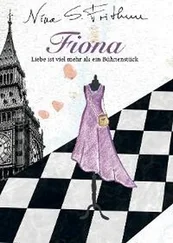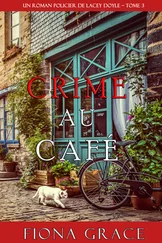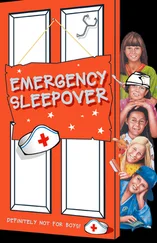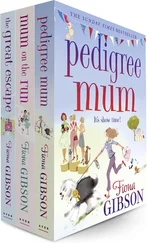I nodded.
Ewart helped himself to a spoonful of coleslaw. He laid it on a floury bap and wrapped up a hunk of just-charred meat.
‘A good turn out, too,’ he noted. ‘You and your sister did well at farm. And Martha’s sister, Julie, did well at Post Office. She got word to those in village that pop in for cash pensions and benefits and like and those that draw cash for rents.’
‘It’s a good crowd,’ I agreed. ‘Do you think much will come of it?’
‘It’s hard to say,’ said Ewart. ‘I don’t know folk round here like I used to. I can’t tell how they feel any more, or how they think. Sometimes I think spirit’s dead and gone, but sometimes I think it’s still there, just resting its eyes. A lot of those here are sons and daughters of men that worked with me up at pit. So many passed away before their time. They drank too much and smoked too much and ate too much of this meat. We all did. But I do see something here of that old world. People are as poor now as they ever were, and as tired. And bringing people together of an evening is easier than keeping them apart. And by that same token, bringing a community back together is easier than setting people and families at odds. It’s just that that’s where all effort’s been this last ten years and more.’
Ewart took a bite of the burger and mayonnaise dribbled down his chin. I passed him a napkin from the table and he wiped his face. I saw that Vivien had been standing with us. She looked at Ewart uncertainly. I was not sure if they knew each other but before I made to introduce them, she spoke.
‘It wasn’t all that wonderful, all the time. Those men who would come together so naturally to support one another would go home drunk and beat their wives.’ Ewart was caught for a moment. Vivien continued, ‘There are dreams, Ewart, and there are memories. And there are memories of dreams.’
Ewart waited for a moment longer, and then, ‘Aye’. The old man nodded and smiled ruefully by way of departure. He walked towards the drinks table, where Martha was busying herself filling plastic cups with cider from a barrel.
‘Do you not think it will work, Vivien?’ I asked.
She simply shrugged.
I was at Vivien’s house the next day. She sat with me and talked for the best part of the morning but in the afternoon left me alone in front of the spitting fire and climbed the stairs. She had plans to meet a friend in town later that afternoon. She told me she would be staying there in the evening and going to a restaurant in Leeds then the theatre to see a play with this friend and she would stay over with her or him at her or his house. She did not say ‘him’ or ‘her’ at any point, though I listened hard for those words, and she did not mention her or his name, though I listened hard for that too. I asked questions that would ordinarily force use of a name or a ‘him’ or a ‘her’. She answered the questions politely, brusquely, but used none of those words.
I heard her moving around in the room above. The floorboards creaked and the heavy oak wardrobe door clicked open and shut. The rap of wire coat-hangers on a steel hanging rail carried clearly. Glass perfume bottles jangled against their neighbours as Vivien nudged the dressing table and pulled drawers from their tressels.
I heard because I listened closely.
I had been upstairs in Vivien’s house only once. The downstairs bathroom had been in repair and there had been wet paint on the walls.
My first thought, though I was ashamed to think it, was that upstairs was not quite as tidy as downstairs. Certainly it was not pristine. There were piles of books on chairs on the landing and an overflowing wastepaper basket. The tightly spun spider plants on the windowsill were tarnished at the tips and the soil in their pots was bone dry. The windows required a damp, soaped cloth on both sides. Greasy fingerprints marked the light switches and door handles.
The vinyl bathroom floor had been covered with a thick, browning rug, flecked with rose-scented talcum powder. I found a tub of this on the shelves behind the toilet. I knew the substance from our years with Granny Morley, when she would lift Cathy and I out of the bath, rub us almost dry with a towel, rub that soft talc like icing sugar onto our skin then help our little legs and arms step and slip into jersey pyjamas.
Above Vivien’s bathroom sink was a glass shelf beneath a mirror which held a couple of toothbrushes lying on their sides and a half-squeezed tube of toothpaste, its blue-specked gel oozing.
I had left the bathroom and meant to go straight back downstairs. Vivien had been in the kitchen pouring loose tea into a teapot. The kettle had been in full boil and masked any sounds she made down there or any sounds I made up here.
But the door to her bedroom had been ajar and, in all honesty, I could not help it. I was able to slip through the crack without pushing it any wider.
There was a pile of clothes on a chair in the corner and more on the bed, clean and dirty, and the wardrobe stood open.
First I had gone to the wardrobe and run my fingers down the arm of a silk blouse of dull ivory with fine violet embroidered petals and picked at its chipped mother-of-pearl buttons. Then I had taken a cotton dress on its hanger from the wardrobe and held it up. It was narrow at the waist and wider where the material hugged Vivien’s breasts and hips. When she wore dresses or buttoned-up blouses they often struggled to stretch over her breasts. And when she wore skirts they were tighter over her hips and sometimes quite baggy at her slim abdomen.
I was skinny all over. My sitting bones could be seen and felt through my slender, pale buttocks, and I was conscious of it. My chest was thin too. My muscles were underdeveloped and my rib-rack stretched my skin almost translucent, and the edges of the bones were outlined in shadows when light came at them from above.
I had moved to the unsorted laundry on the bed.
You have to appreciate that I never thought of myself as a man. I did not even think of myself as a boy. Of course, if you had asked me I would certainly have replied that that was what I was. It is not as if I had ever actively rejected that designation. I just never thought about it. I had no reason to think about it. I lived with my sister and my father and they were my whole world. I did not think of Cathy as a girl nor as a woman, I thought of her as Cathy. I did not think of Daddy as a man, though I knew that he was. I thought about him, likewise, as Daddy.
In the months I lived with Daddy and Cathy in the copse I let my hair grow long. It was long through inattention. I did not think to cut it. I did not think to ask Cathy or Daddy to cut it for me. They did not prompt me. So it grew long. The colour of beech bark. And matted, for want of a comb. And in places the hair was lank with oil for, though I washed it, I could not wash it regularly. My nails were long too. I do not remember ever using nail scissors. I do not know if we had them in the house. When they became too much I picked and bit at them, trimming them roughly in that way. But with the exception of this occasional, inattentive grooming, I allowed the nails to grow. Not absurdly long, but slightly longer than, I discovered later, was appropriate for a boy. Or for a man. I did not know then that it was girls not boys who grew their hair and their nails long. I did not think about it. Nor did I realise that the men and boys who lived nearby would never wear a T-shirt that did not reach their jeans, as I did. Partly, again, this was through inattention. I had grown taller without noticing but still wore the same T-shirts. But partly, I have to admit, I wore my clothes in this manner because I had seen my mother wearing her clothes in this manner. I wore those little T-shirts and those too-tight jeans and I left my midriff bare because I had seen my mother do this. And nobody corrected me. Or nobody noticed. Or it did not matter. Or I do not know what.
Читать дальше
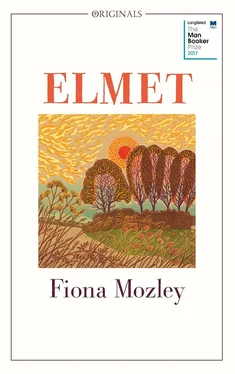

![David Jagusson - Fiona wird durchgefickt [BDSM]](/books/491106/david-jagusson-fiona-wird-durchgefickt-bdsm-thumb.webp)
